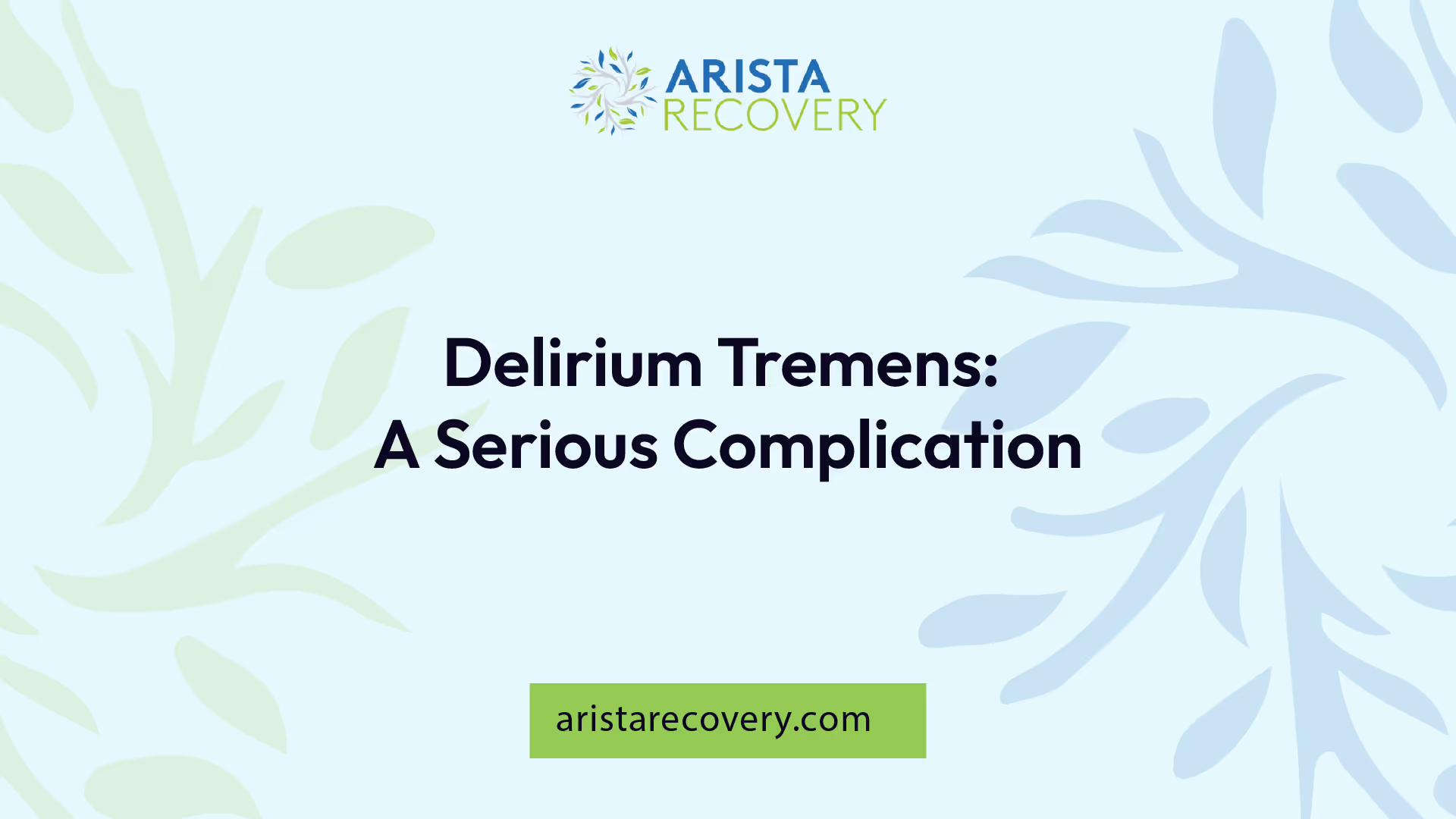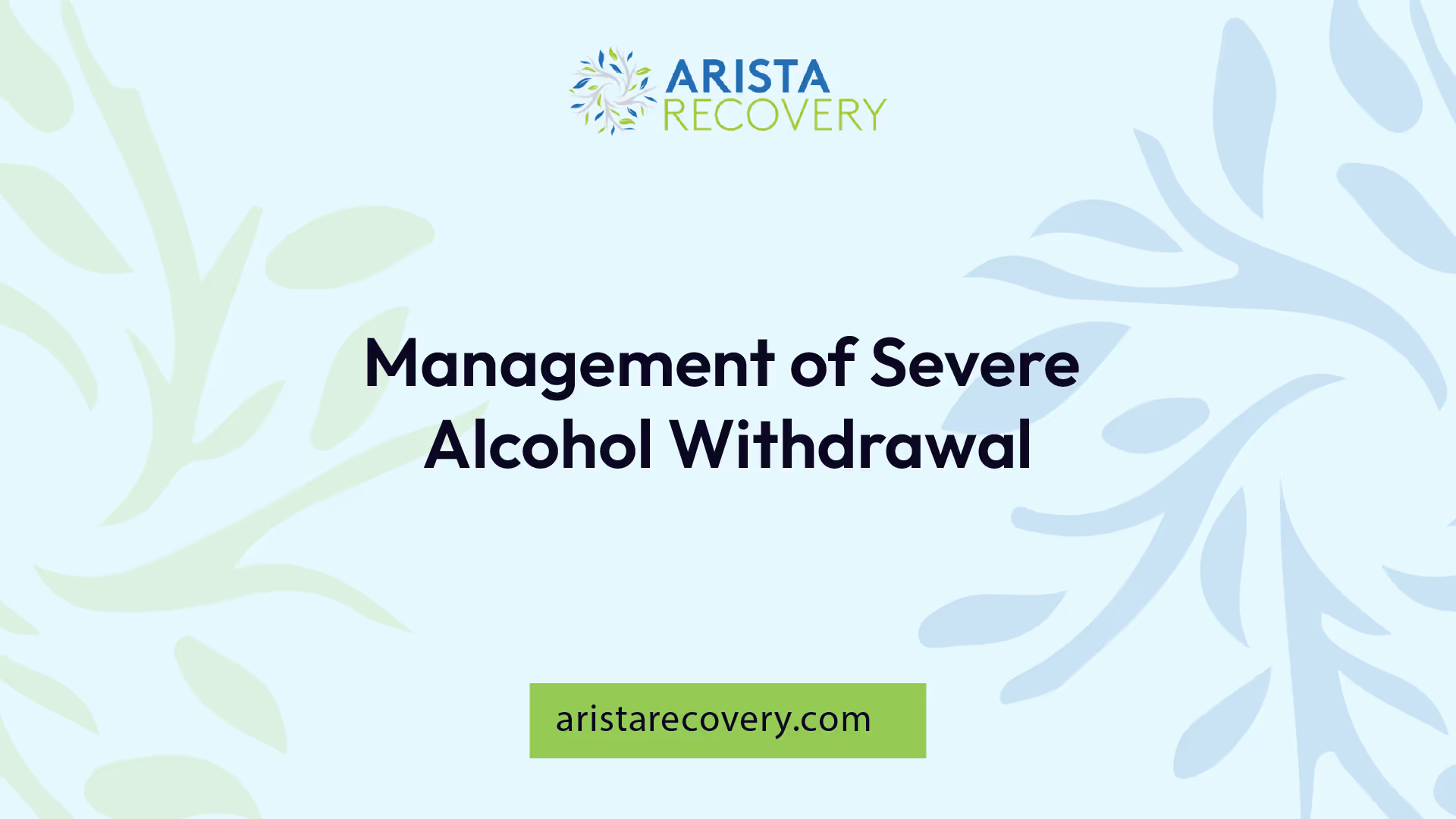Dealing with Severe Alcohol Withdrawal


Understanding Alcohol Withdrawal
Grasping the concept of alcohol withdrawal is vital when dealing with or understanding alcohol addiction disorders. This process refers to the symptoms that occur when a person with an alcohol use disorder suddenly stops or drastically reduces their alcohol intake.
Spectrum of Alcohol Withdrawal Symptoms
Alcohol withdrawal symptoms can range from mild to severe. Mild symptoms usually start as early as 6 hours after stopping drinking, and include anxiety, shaky hands, headache, nausea, vomiting, insomnia and sweating. More severe symptoms like hallucinations and seizures can occur 12-48 hours after the last drink. The most serious form of alcohol withdrawal, known as delirium tremens, usually starts 48-72 hours after stopping drinking. This includes severe symptoms like vivid hallucinations and delusions, but only about 5% of people with alcohol withdrawal experience them.
For more extensive information on the symptoms of alcohol withdrawal, you can visit our page on alcohol withdrawal symptoms.
Risk Factors for Severe Alcohol Withdrawal
Half of the individuals who suddenly stop or reduce their alcohol consumption will experience alcohol withdrawal syndrome, with the severity varying. Factors that increase the risk of severe alcohol withdrawal include a history of withdrawal seizures, a history of delirium tremens, older age, and a history of heavy alcohol use for more than 10 years.
Additionally, more than 90 percent of alcohol withdrawal seizures occur within 48 hours after the patient stops drinking, with fewer than 3 percent occurring 5 to 20 days after the last drink. The likelihood and severity of withdrawal seizures increase with the number of past withdrawals, attributed to cumulative long-term changes in brain excitability.
Understanding the risk factors for severe alcohol withdrawal can help individuals and their loved ones prepare for the potential challenges that they may face during the withdrawal process. For more information on severe alcohol withdrawal and its treatment options, please visit our page on acute alcohol withdrawal.

Delirium Tremens: A Serious Complication
Delirium Tremens (DT’s) is a severe manifestation of alcohol dependence and a life-threatening form of alcohol withdrawal. This condition is a medical emergency that requires immediate intervention.
Onset and Symptoms of Delirium Tremens
Delirium Tremens typically develops 1 to 4 days after the onset of acute alcohol withdrawal in individuals who have been heavy drinkers for years. However, the symptoms of alcohol withdrawal tend to peak 24 to 72 hours after the last drink, but some symptoms can last for weeks.
The most severe manifestation of this syndrome, known as alcohol withdrawal delirium, can include symptoms such as fever, tachycardia, agitation, diaphoresis, hallucinations, disorientation, and hypertension, and can occur 3 to 8 days following alcohol cessation. For a comprehensive list of delirium tremens symptoms, check out our article on delirium tremens symptoms.
Mortality Rate and Risk Factors
Delirium tremens has a high mortality rate, with about 5% to 10% of people with this complication dying from it. However, adequate medication and medical support can reduce the risk of death.
Risk factors for developing alcohol withdrawal delirium include concurrent acute medical illness, daily heavy alcohol use, history of delirium tremens or withdrawal seizures, older age, abnormal liver function, and more severe withdrawal symptoms on presentation.
Understanding the risk factors and recognising the symptoms of delirium tremens can help in seeking timely medical intervention. For information on how to manage this severe form of alcohol withdrawal, you can refer to our article on delirium tremens treatment.

Management of Severe Alcohol Withdrawal
Managing severe alcohol withdrawal requires careful attention, as it can present serious health risks. It often entails hospital treatment and the use of specific medications, such as benzodiazepines.
Hospital Treatment for Severe Symptoms
Severe and complicated alcohol withdrawal symptoms require treatment in a hospital, sometimes even in the Intensive Care Unit (ICU). This level of care allows for constant monitoring and immediate responses to changes in the patient's condition.
Patients with moderate to severe alcohol withdrawal syndrome at initial assessment will require inpatient level care, with frequent reassessment to monitor their condition and prevent progression to alcohol withdrawal delirium and seizures [2]. This type of treatment can help manage the risks associated with acute alcohol withdrawal and prevent the onset of delirium tremens symptoms.
Benzodiazepines for Alcohol Withdrawal
Benzodiazepines are the preferred agents for treating alcohol withdrawal syndrome due to their safety and efficacy in preventing or treating seizures and delirium. These medications, which include diazepam, chlordiazepoxide, lorazepam, and oxazepam, work by slowing down the central nervous system, thereby helping to alleviate the symptoms of alcohol withdrawal.
Adjunctive medications such as haloperidol, beta blockers, clonidine, and phenytoin may also be used in conjunction with benzodiazepines to treat complications of alcohol withdrawal.
The prognosis of alcohol withdrawal syndrome depends on the severity at presentation and how promptly treatment is initiated. Treatment with benzodiazepines reduces the risk of progression [2]. For more information on the treatment of alcohol withdrawal syndrome, refer to our guide on delirium tremens treatment.
The management of severe alcohol withdrawal is a serious matter that requires professional medical intervention. If you or a loved one is experiencing symptoms of severe alcohol withdrawal, it is crucial to seek immediate medical attention. Through proper treatment and care, the risks associated with severe alcohol withdrawal can be significantly reduced.
Complications and Prognosis
In the context of severe alcohol withdrawal, it's important to understand the potential complications and overall prognosis. This information can guide treatment decisions and help individuals and healthcare providers anticipate potential challenges.
Life-Threatening Complications
Severe presentations of alcohol withdrawal syndrome can lead to life-threatening complications that require urgent intervention across multiple healthcare settings. Alcohol withdrawal delirium, the most severe manifestation, can include symptoms such as fever, tachycardia, agitation, diaphoresis, hallucinations, disorientation, and hypertension. These symptoms can occur 3 to 8 days following alcohol cessation [2].
Approximately 3% to 5% of patients with alcohol withdrawal syndrome progress to alcohol withdrawal delirium, which can be fatal. Delirium tremens, a severe form of alcohol withdrawal, can also be life-threatening, with about 5% to 10% of people with this complication dying from it.
Prognosis and Treatment Initiatives
The prognosis of alcohol withdrawal syndrome depends on the severity at presentation and how promptly treatment is initiated. Treatment with benzodiazepines reduces the risk of progression. Historically, the mortality rate of alcohol withdrawal delirium has been as high as 20%, but with advances in critical care, prompt diagnosis, and treatment, the rate is now around 1%.
Patients with moderate to severe alcohol withdrawal syndrome at initial assessment will require inpatient level care, with frequent reassessment to monitor their condition and prevent progression to alcohol withdrawal delirium and seizures. The CIWA-Ar scale is used to assess the severity of common symptoms of alcohol withdrawal syndrome, with scores above 15 indicating severe withdrawal.
Alcohol withdrawal syndrome can range in severity from mild to fatal, making it crucial for patients to seek care for evaluation of their symptoms. If signs and symptoms of severe withdrawal, such as seizures or altered mental status, occur, patients should seek emergency care immediately [2]. More detailed information on dealing with severe alcohol withdrawal can be found in our articles on alcohol withdrawal symptoms, delirium tremens symptoms, and delirium tremens treatment.
Seeking Care for Alcohol Withdrawal
As one navigates the path of recovery from alcohol addiction, understanding the potential challenges, including severe alcohol withdrawal, is essential. This section will shed light on the importance of seeking medical evaluation during withdrawal and the emergency care options available for severe symptoms.
Importance of Seeking Evaluation
Alcohol withdrawal syndrome can range from mild to fatal, emphasizing the importance of seeking care for an evaluation of symptoms. It's crucial for individuals with a history of complicated withdrawals not to attempt decreasing their alcohol intake without consulting their healthcare team.
Alcohol withdrawal affects approximately 50% of people with alcohol use disorder (AUD) who stop or significantly decrease their alcohol intake. AUD is the most common substance use disorder in the U.S., affecting 28.8 million adults.
If signs and symptoms of severe withdrawal, such as seizures or altered mental status, occur, individuals should seek emergency care immediately. You can learn more about the symptoms of alcohol withdrawal on our dedicated page.
Emergency Care for Severe Symptoms
Severe presentations of alcohol withdrawal syndrome can lead to life-threatening complications and require urgent intervention across various healthcare settings [2].
Patients with moderate to severe alcohol withdrawal syndrome at the initial assessment will require inpatient level care, with frequent reassessment to monitor their condition and prevent progression to alcohol withdrawal delirium and seizures.
Severe and complicated alcohol withdrawal requires treatment in a hospital, sometimes in the ICU. The primary management for severe symptoms is long-acting benzodiazepines, typically IV diazepam or IV lorazepam.
Mortality rates can be high, with alcohol withdrawal delirium historically reaching up to 20%. However, with advancements in critical care, prompt diagnosis, and treatment, the current rate is around 1%.
Understanding the severity and risks associated with alcohol withdrawal, particularly delirium tremens, is crucial. If you or a loved one is experiencing severe alcohol withdrawal symptoms, do not hesitate to seek emergency care. Remember, timely medical intervention can significantly improve prognosis and reduce the risk of life-threatening complications. Learn more about treatment options for severe alcohol withdrawal on our website.
References
[1]: https://www.webmd.com/mental-health/addiction/alcohol-withdrawal-symptoms-treatments
[2]: https://www.ncbi.nlm.nih.gov/books/NBK441882/
[3]: https://my.clevelandclinic.org/health/diseases/alcohol-withdrawal
[4]: https://www.ncbi.nlm.nih.gov/pmc/articles/PMC6761825/
[5]: https://www.aafp.org/pubs/afp/issues/2004/0315/p1443.html
You’re not alone in this.
When mental health challenges and addiction intersect, it can feel isolating. At Arista, we offer compassionate, evidence-based, and trauma-informed care to help you heal, grow, and move forward.
You’re not alone in this.
When mental health challenges and addiction intersect, it can feel isolating. At Arista, we offer compassionate, evidence-based, and trauma-informed care to help you heal, grow, and move forward.
Support that moves with you.
You’ve taken a brave first step. At Arista Recovery, we’re here to help you continue with best-in-class care designed for long-term healing and support.
.webp)






